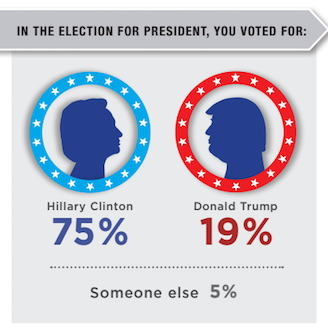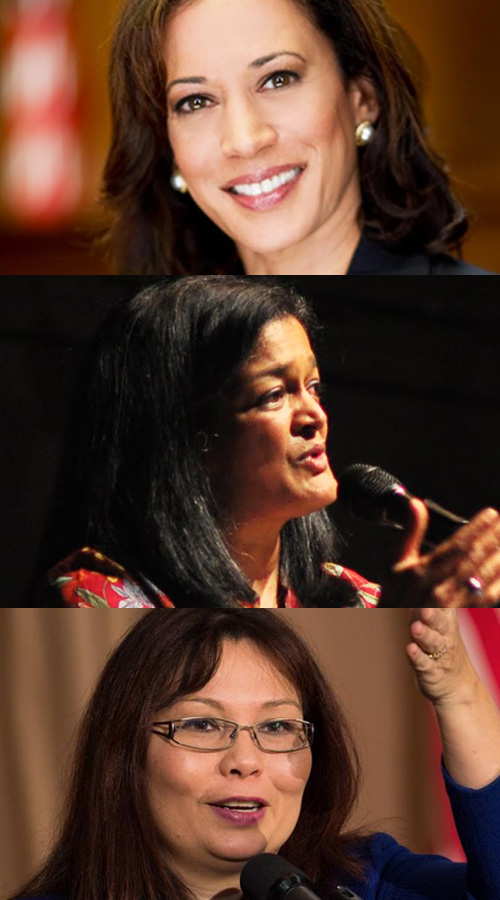An overwhelming majority of Asian American voters chose Hillary Clinton over Donald Trump in the election, according to a national poll conducted by five collaborating AAPI groups that contradict exit poll findings.
The Asian American National Election Eve Poll found that 75 percent of the AAPI community backed Clinton, while only 19 percent voted for Trump, a bigger margin than indicated by exit polls, which found that 65 percent of Asian Americans voted for Clinton.
According to Taeku Lee, a professor of political science at the University of California, Berkeley, this wasn’t the first time exit polls were wrong about minority voters. “Once again, the national media exit poll numbers for Latinos and Asian Americans didn’t do it right and didn’t get it right,” Lee said.
The poll surveyed 2,400 respondents from six different ethnic groups, finding that 69 percent of Chinese Americans, 87 percent of Indian Americans, 65 percent of Korean Americans, 78 percent of Filipino Americans, 64 percent of Japanese Americans and 74 percent of Vietnamese Americans voted for Clinton.
 Asian American voters in 2016 presidential election (Courtesy of AAAJ)
Asian American voters in 2016 presidential election (Courtesy of AAAJ)
“One of the challenges in polling Asian Americans has been getting large enough sample sizes to look at ethnic-specific trends,” said Dan Ichinose, a researcher with Asian Americans Advancing Justice, an organization that was involved in the poll, to Fusion. “We surveyed enough of these particular ethnic groups to ensure we could say something substantive about how they voted.”
A key finding by the poll was how substantially Asian Americans have shifted toward the left over the last few decades, as 54 percent of AAPI voters now identify as Democrats compared to 49 percent in 2012 and 31 in 1992. Currently, only 14 percent of the AAPI population identify with the Republican party.
“I think we are seeing Asian Americans generally lining up – especially as time passes – with other communities of color, in ways that counter the narrative that Asian Americans are still mostly conservative,” Karin Wang, vice president of programs and communications at AAAJ Los Angeles, told Fusion.







